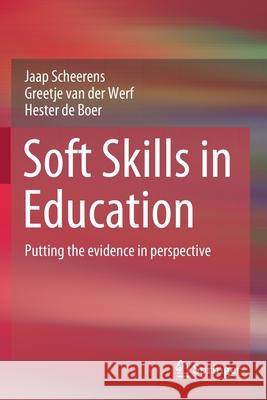Soft Skills in Education: Putting the Evidence in Perspective » książka
topmenu
Soft Skills in Education: Putting the Evidence in Perspective
ISBN-13: 9783030547899 / Angielski / Miękka / 2021 / 239 str.
Soft Skills in Education: Putting the Evidence in Perspective
ISBN-13: 9783030547899 / Angielski / Miękka / 2021 / 239 str.
cena 523,30
(netto: 498,38 VAT: 5%)
Najniższa cena z 30 dni: 501,19
(netto: 498,38 VAT: 5%)
Najniższa cena z 30 dni: 501,19
Termin realizacji zamówienia:
ok. 22 dni roboczych.
ok. 22 dni roboczych.
Darmowa dostawa!
Kategorie:
Kategorie BISAC:
Wydawca:
Springer
Język:
Angielski
ISBN-13:
9783030547899
Rok wydania:
2021
Wydanie:
2020
Ilość stron:
239
Waga:
0.36 kg
Wymiary:
23.39 x 15.6 x 1.37
Oprawa:
Miękka
Wolumenów:
01
Dodatkowe informacje:
Wydanie ilustrowane











